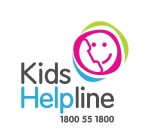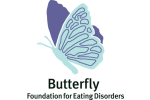About Us
As professionals working with young people, practitioners understand the importance of rapport building, confidentiality and professionalism to ensure the best outcomes possible whilst ensuring that every adolescent and young person is provided with the best attention and care.
As part of using a holistic approach to therapy, and with the permission of the young person, practitioners may work with their family members including parents and caregivers to improve communication and relationships.
Our Services

Anxiety
Anxiety
Anxiety is generally defined as feelings of worry, fear and apprehension or nervousness. When people present with an anxious presentation, they report experiencing excess
Learn More
Depression
Depression
Depression is generally defined as feelings of sadness and unhappiness that our that outweigh any positive feelings.

Bullying
Bullying
Bullying is generally defined as the behaviours that centre around making someone else feel inadequate or focusing on belittling them. It can range from harassment, physi
Learn More
Study Skills
Study Skills
We assist students who require support in building their study skills by offering an individual program tailored to their learning needs.
Learn More
Parent support
Parent support
Parents and guardians of teens can often find it quite difficult to raise adolescents and young people, especially in this generation whereby things are significantly dif
Learn MoreSocial Skills
Social Skills
We assist preteens and teens in developing their social skills through an individualised social skills program.
Learn MoreOur Services
Anxiety
Anxiety is generally defined as feelings of worry, fear and apprehension or nervousness. When people present with an anxious presentation, they report experiencing excessive levels of anxiety, quite frequently, which may prevent them from carrying out their day to day activities. They simply become overwhelmed with their feelings of fear and worry.
Anxiety impacts three main areas: 1) Our Body (physiological) 2) Our Thoughts (cognitive) and 3) Our Actions (Behaviour).
In other words, when someone is anxious and perceive a situation as threatening, they are likely to experience a number of physiological reactions (e.g. racing heart, hyperventilation, nausea etc.). They are also likely to think more catastrophically and negatively than typically expected. Common Examples may include "What if I make a mistake?" or "What if I say something and people laugh at me?" or "What if something bad happens to me?". Consequently, anxious people begin to avoid the objects or situations they fear in order to feel calmer and safe.
People often wonder what causes anxiety, specifically in young people who are thought to be so "care free". Anxiety is often a combination of biological (e.g. genetic predisposition) and environmental factors (e.g. stress from HSC, changes, death of a family member/ family life stressors, an emotional shock following a traumatic event, some form of abuse/ trauma) which can lead a young person to developing anxiety.
ACPC Psychologists understand what it is like for young people with significant levels of stress and anxiety and how that might impact their everyday social, emotional, and occupational functioning. We are here to teach young people to understand their anxiety and empower them to manage it more effectively.

Depression
Depression is generally defined as feelings of sadness and unhappiness that outweigh any positive feelings. Depression is more than just feeling sad or upset and it is a serious condition. When people present with a depressive presentation, they report experiencing feelings of irritability, sadness and stress most of the time. Such feelings become long lasting and overwhelming impacting the way they think, feel, and behave. This may prevent them from functioning in their day-to-day lives.
There are a number of factors that can affect the way we think feel and behave. Some people may develop depression following a stressful life event (e.g. bullying, grief and loss, discrimination, family breakup, etc.). Initially, depression my start with feelings of sadness significant stress or anxiety. However, over time such feelings can become more intense and overwhelming impacting the way we feel about ourselves and others.
Depression is very common. According to psychological research, one in 16 young people between 16 and 24 years of age can experience a level of depression each year. It is found that girls are more likely than boys to experience depression however; girls are more vocal than boys and are therefore more likely to speak to others about their feelings and seek help.
ACPC Psychologists understand how depression can make young person feel stressed out, down, and completely isolated despite having family and friends. We believe that taking action by speaking to a professional is a proactive way to tackle such feelings. We therefore encourage young people to seek help rather than ignore how they feel. Seeking help is the bravest thing that a young person can do especially when they're feeling down. We are here to listen.

Bullying
Bullying is generally defined as the behaviours that centre around making someone else feel inadequate or focusing on belittling them. It can range from harassment, physical harm (i.e. physical bullying), repeatedly demeaning speech (i.e. verbal bullying) and ostracising individuals (i.e. emotional bullying). Bullying is an active process which involves the intention of bringing another person down.
Cyber bullying is one of the most popular types of bullying in this generation and is becoming very serious problem for young people. It is a type of bullying or harassment that is achieved through the use of technology, for example through using instant messaging, self on text messages and online social networks. Because it can be shared widely and would reach lots of people quickly, it can be quite dangerous and hurtful for young people. It can also cause real humiliation because the bullying becomes exposed to the public, the information is difficult takedown or remove and affect the young person in their own home making it difficult to escape the bullying.
Bullying can impact people in a number of ways. It can make person feel guilty like it is their fault, hopeless and stuck like they can't escape the situation, and isolated often feeling that there is no one to help. It can also make a person feel like they cannot socially fit in, depressed and rejected in their social environment. This leaves the person feeling stressed out wondering what to do and why this is occurring to them.
ACPC Psychologists understand that bullying can make a person feel anxious, depressed and isolated. We therefore believe that no young person should go through it on their own. We are here to listen, empower and guide young people in dealing with bullying by teaching them ways to manage such stressful situations.

Study Skills
Many school aged children transitioning to High School and commencing Year 7 may struggle in various aspects in their study techniques and skills.
This may also be the case for young teens in years 8, 9 10 and 11 who often find it difficult to develop study techniques that work for them.
Several reasons may impact their struggles including:
- Lack of training and poor study techniques
- Poor understanding of their own strengths and challenges in learning
- Belief that one study technique 'fits all'
- Difficulty managing anxiety and stress
- Problems in Procrastination
- Problems in organisational skills and planning
ACPC Psychologists understand these struggles impacting academic performance and achievement. Educational Psychologists aim at providing the student with the awareness, skills and confidence to tackle their various subjects and learning how to maximise performance by matching the student's learning style and strengths whilst also teaching how to balance study with other important aspects of life.

Parent support
Parents and guardians of teens can often find it quite difficult to raise adolescents and young people, especially in this generation where things are significantly different. When a teen has some kind of a problem, it is often the case that the parent or guardian is impacted as well. Young people can display having a problem by withdrawing themselves from family members, lashing out at family members or displaying increased challenging behaviour. It can also be quite difficult to figure out what is troubling the young person and what can be done to best support them.
ACPC Psychologists provide support and assistance to parents and guardians of young people. Sessions aim at providing a setting whereby carers of the young person can openly exchange information, receive support and guidance to examine ways to best support their adolescent. Through psychoeducation and coaching, we aim at guiding parents or guardians in understanding a specific presentation and teach them ways on how to improve the communication and relationship with their teen.

Social Skills
ACPC aim to support preteens and teens between the ages of 11 and up to 17 years old who may need assistance with their social and emotional development as well as a boost in confidence.These may include children with high functioning Autism Spectrum presentation, those with anxiety disorders, and those who lack self- regulation, or social understanding of others and/or resilience.
Some of the targeted area of skills building may include working on:
- Peer relations and interactions
- Maintaining friendships
- Understanding other people's views
- Problem solving in social contexts
- Passive or Aggressive communication skills
- Understanding and reading Body Language
- Improving Conversational Skills
- Relaxation strategies
- Tuning to & Managing our thoughts
- Getting attention in positive ways
- Conflict management
ACPC clinicians use a combination of therapeutic techniques based on cognitive behavioural therapy, acceptance and commitment therapy as well as mindfulness to ensure that individuals are empowered with the skills necessary to increase their coping skills and management.
ACPC Psychologists understand the complexities that can be associated with the social world, specifically for those individuals that may see the world differently. Empowering teens through knowledge and skills building helps with boosting their confidence in partaking in their social world. The more confident they are, the more likely they will practice their skills and expose themselves to more social opportunities that they can learn from.











